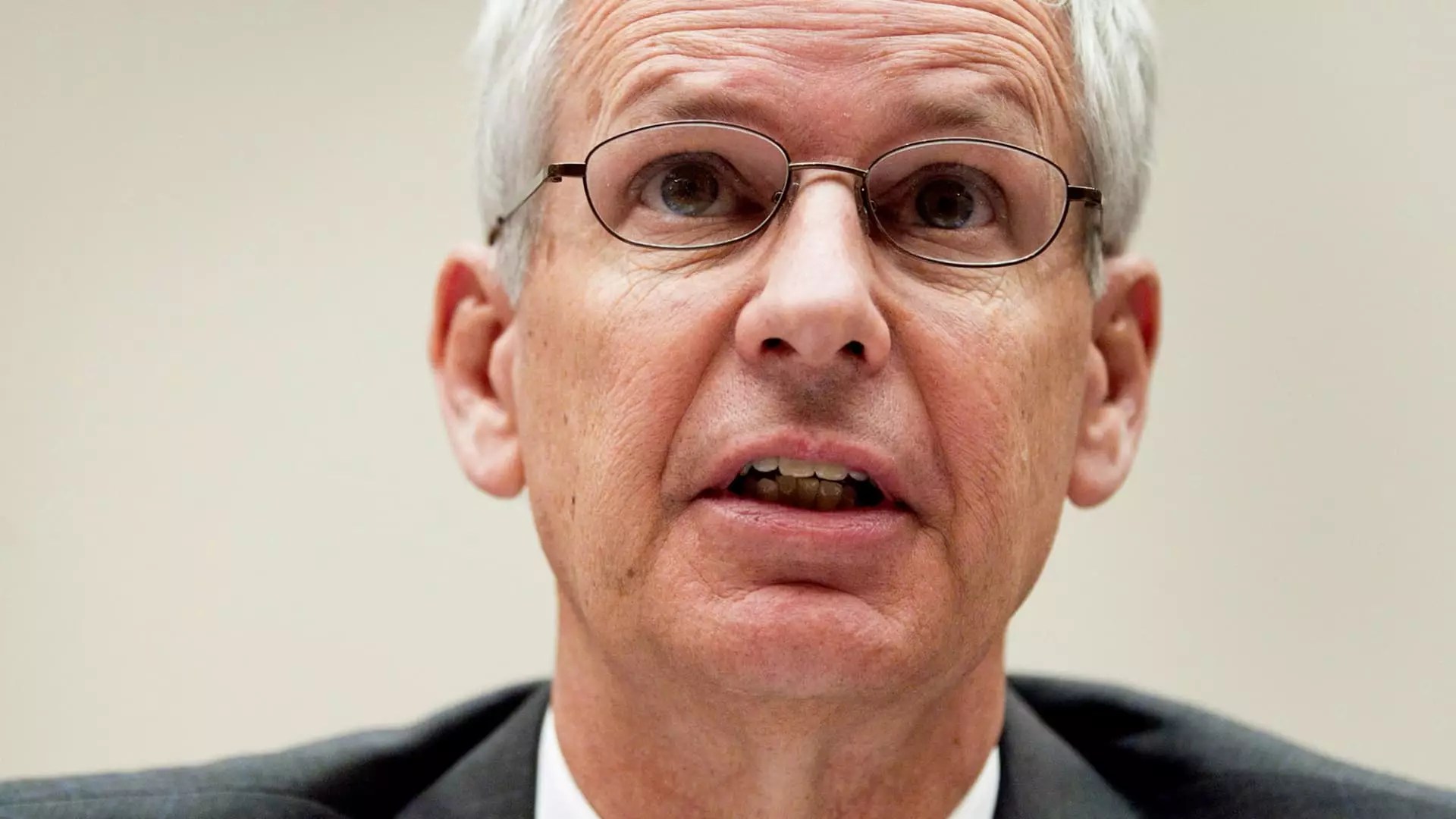Dish Network’s strategic trajectory can be likened to an inconclusive sitcom finale that leaves audiences longing for more closure. In the early 2010s, co-founder Charlie Ergen introduced an analogy to the beloved 1990s series “Seinfeld” during an earnings call, suggesting that while Dish’s many initiatives lacked immediate clarity, they would ultimately come together in a spectacular way—just like the show’s tangled storylines. However, as regulatory approval for a sale transaction was confirmed recently, it became painfully evident that this metaphor would not hold true. The company has found itself on the disappointing end of a deal where EchoStar, its parent company, sold Dish to DirecTV for only a dollar, encumbered with an overwhelming $9.75 billion in debt.
This significant shift highlights a much larger trend: as the media landscape evolves, traditional players in the content distribution sector, including Dish and DirecTV, have faced unprecedented challenges. A staggering 63% of their collective video subscribers have vanished since 2016, as consumers increasingly turn to streaming services and high-speed internet options that redefine entertainment consumption. Companies like Comcast and Charter have capitalized on this shift, further squeezing the lifeline of satellite-based providers like Dish.
Just a decade ago, Dish wielded commendable market power. During preliminary merger talks with DirecTV in 2014, the combined worth of both entities was compelling, with DirecTV commanding a market cap around $40 billion, while Dish held strong at over $28 billion. However, as the years pressed on, the satellite television model began to fall out of favor with younger consumers, signaling declining valuations for both providers. DirecTV’s eventual sale to AT&T for $49 billion only cemented the disparity in their business trajectories.
Now, with EchoStar having resumed control over Dish, and their combined enterprise value dwindling, the financial fallout has been nothing short of dramatic. The stock price of EchoStar plummeted over 11% on the day of the sale announcement, underscoring investor sentiment—a clear indication that the market is moving away from traditional television.
In a bid to remain relevant, Dish has struggled with its attempts to pivot into the wireless market. Over the years, the company embarked on an ambitious strategy to marry its pay-TV operations with a nationwide wireless network by acquiring spectrum licenses and investing in infrastructure. One notable acquisition came in 2019 when Dish purchased Boost Mobile, following T-Mobile’s divestiture for $1.4 billion. This move seemed promising, yet dissatisfying results soon followed. The company’s inability to establish a parallel wireless service has compounded its troubles, as dwindling cable subscriptions hampered Dish’s financial backbone.
EchoStar’s CEO Hamid Akhavan articulated this struggle, admitting that committing resources across multiple directions proved to be a distraction for management. With limited capital to execute simultaneous business ventures, Dish quickly found itself unable to sustain its legacy operations while developing new avenues for revenue. This systemic overload further eroded its once-strong market presence, exemplifying the mounting pressure traditional media companies face in the digital age.
Reflecting on Dish’s journey, one cannot help but view its trajectory as a cautionary tale amidst an ever-evolving media landscape. Just as “Seinfeld” concluded with mixed reviews, leaving fans disillusioned, Dish Network finds itself grappling with the consequences of outdated business models and missed opportunities.
As streaming continues to dominate consumer habits and technological advancements lead to swift changes, companies that fail to adapt may find themselves fading into obscurity. It remains to be seen whether Dish will find a way to reinvent itself or whether it will fade like a flickering television screen during the final credits. The future holds a multitude of uncertainties, but one lesson is crystal clear: in the world of media, evolution is crucial, or risk following in the footsteps of a lackluster finale.


Leave a Reply